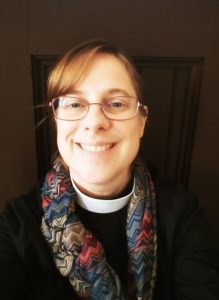Lessons from a Foster Family
It was two in the morning when a little round face popped up from the mattress, looked right and left, and then asked, “Umma?” He was ten months old and had already mastered the intonation of a question.
It was two in the morning when I patted my little son on the back and said softly, “No, sweetie, Umma’s not here.” He understood, not my words, but that pat, that maternal tone, that warm blanket. He put his head down and went back to sleep.
My son’s Umma is a woman I’ve never met. She does not speak my language or eat the foods I eat. Aside from this child, we have no common connection. For ten months she nurtured my son as her own, though he came into her house a helpless and needy little stranger. She carried him on her back as he grew from being a tiny early arrival in this world to a hefty baby boy. She cared for him through two hospitalizations. She woke around the clock to feed and comfort him. Umma is the Korean word for mom, and though her own children were grown, she was his Umma. Her grown children were his brother and sister. He was, for those ten months, just like every foster child she’d had before and every one to come after, part of their family.
Because of his Umma, my ten-month-old baby knew, in those wee, dark hours, what it was to be comforted. It did not matter who comforted him, it mattered that he was comforted. Because this stranger, for no reason other than love, had been his Umma, he understood what it meant that, only two weeks before, I had become his mom.
Isaiah 40 begins with the Prophet’s commission: “Comfort, comfort my people, says your God. Speak tenderly to Jerusalem and cry to her that her warfare is ended.” (Isaiah 40:1-2a, ESV) This message of comfort comes at a time when the people of God suddenly find themselves to be vulnerable and weak strangers in a powerful foreign land. Into this message of exile, God also interjects a message of peace, of comfort, in words that all who know His patterns can recognize. Even in a foreign land, God will be there. Even though his people have become powerless, accepting care at the hands of a stranger, His patterns will hold fast. If they listen, they will still hear His voice.
The Church today, like the people of Israel, often gets bogged down in the idea that we are strangers in a land that is not our own. We become tempted to pull up the gates and fear what is on the outside, but in doing so we would miss our role. We are not, in fact, the exiles. We are instead like Isaiah, prophets of comfort, sent to speak tenderness to a darkened world. Our urge is to pull up the drawbridges as we ponder the massive chasm between this world and the Kingdom of God; we forget that we are the drawbridge.
The Church itself is often described as our mother, but the Church on earth is more of a foster mother, living in the culture of our birth family to prepare us for our permanent home. Romans 8:15 is perhaps the best known of passages in which we are described as adopted into God’s household, as Paul proclaims that his reader has received the “spirit of adoption,” literally son-placement (Greek English Lexicon of the New Testament, p. 1024), borrowing secular custom and language to make clear how fully accepted and transformed we are in God’s radical acceptance of us as His heirs.
As citizens of two kingdoms, the world and the Kingdom of God, we also serve as foster parents, preparing our children to recognize true comfort when they receive it, to know the patterns and culture of their permanent home. The Church’s language is naturally familiar for this reason. We call one another brothers and sisters because regardless of our family or origin we are adopted into the household of God. St. John, in his first epistle, sweetly addresses his readers as “dear children” (regardless of their earthly age) as well as “brothers and sisters” (without concern for earthly rank and status) as he pours the language of one family into the lively Ephesian context. It is an act of pure grace, which moves us from the household and future of a slave to the status of an uncontested heir.
The modern congregation is aware, attending to the adoption of children. The life-affirming and savvy congregation may be ahead of the curve in the need for foster families in the world and supports those who provide foster care. The next challenge is less obvious; let down our drawbridge and foster whoever wanders through our doors. Like every good foster family, we will have culture clashes, and some we will regrettably let go in the end. Nonetheless, it remains to us to “comfort, comfort my people.”











Pingback: Faith & Family — Ten Things that Caught My Eye Today | Capmocracy.com
Pingback: Ten Things that Caught My Eye Today (January 4, 2019) – Washington Insider
Pingback: Lessons from a Foster Family - Anglicans For Life